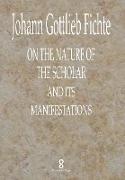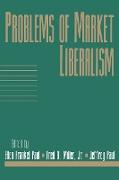On the Nature of the Scholar and its manifestations
BücherAngebote / Angebote:
Thomas Carlyle described Fichte and this book thus:
"Fichte, the German philosopher, delivered, some forty years ago, at Jena, a highly remarkable course of lectures on this subject: 'Neber das Wesen des Gelehrten (on the Nature of the Literary Man).' Fichte, in conformity with the transcendental Philosophy, of which he was a distinguished teacher, declares, first: That all things which we see or work with in this earth, especially we ourselves and all persons, are as a kind of vesture or sensuous appearance: that under all there lies, as the essence of them, what he call the ' Divine Idea of the World, ' this is the reality which 'lies at the bottom of all appearance.' To the mass of men no such divine idea is recognisable in the world, they live, merely, says Fichte, among the superficialities, practicalities, and shows of the world, not dreaming that there is anything divine under them. But the man of letters is sent hither specially that he may discern for himself, and make manifest itself in a new dialect, and he is there for the purpose of doing that. Such is Fichte's phraseology, with which we need not quarrel. It is his way of naming what I here, by other words, am striving imperfectly to name, what there is at present no name for, the unspeakable Divine Significance, full of splendour, of wonder and terror, that lies in the being of every man, of everything-the presence of the God, who made every man and thin?
"Fichte calls the man or letters, therefore, a prophet, or as he prefers to phrase it, a priest, continually unfolding the godlike to men: Men of letters are a perpetual priesthood, from age to age, teaching all men that a God is still present in their life, that all appearance, ' whatsoever we see in the world, is but as a vesture of the 'Divine Idea of the World, ' for 'that which lies at the bottom of appearance.' In the true literary man there is thus ever, acknowledged or not by the world, a sacredness: he is the light of the world, the world's priest, -guiding it, like a sacred pillar of fire, in its dark pi grim age through the waste of Time. Fichte discriminates with sharp zeal the true literary man, what we here call the hero as man of letters, from multitudes of false un-heroic. Fichte even calls him elsewhere a 'nonentity, ' and has in short no mercy for him, no wish that he should continue happy among us! This is Fichte's notion of the man of letters.
Folgt in ca. 15 Arbeitstagen


